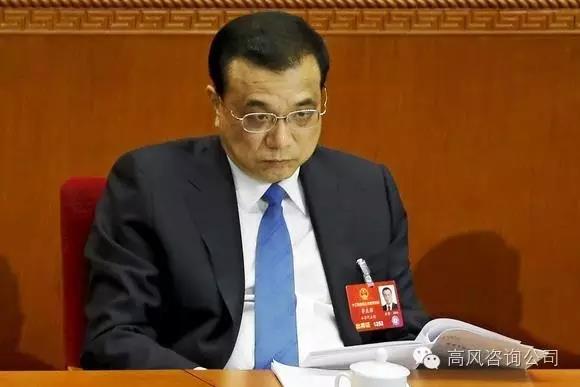
April 19, 2016 6:25 pm JST
When Chinese Premier Li Keqiang presented his annual report to the roughly 3,000 members of the National People’s Congress in Beijing’s Great Hall of the People in March, he was laying out a blueprint for China’s future. Notably, his speech was neither rose-tinted nor bleak, openly identifying threats as well as potential opportunities.
Recognizing that China’s rate of growth has slowed to the so-called “new normal,” Li set out how China is to pivot toward a new economic structure. While he mentioned green technology and urbanization, the core of the planned economic transformation is to be the so-called “twin engines” of innovation and entrepreneurship.
The premier mentioned the word “innovation” 59 times and “entrepreneurship” 22 times. Other buzz phrases such as “Internet plus,” “sharing economy,” “big data” and “Internet of Things” also appeared multiple times. However, the stress on entrepreneurship reflects several underlying factors that are driving innovation.
First, the raw material is abundant. There are already many young people who want to follow in the footsteps of China’s successful entrepreneurs. They see successful self-made businessmen such as Alibaba Group Holding founder Jack Ma Yun and Tencent Holdings’ founder Pony Ma Huateng as role models and believe they too can reach those heights.
Competition is also playing a role. Although China’s shift from central planning to a market economy has been gradual, sectors are being opened up over time and the rise of private enterprise is bringing paradigm shifts to both the consumer and business landscape.
Competition in open sectors is extremely intensive and innovation is essential to gain continuous competitive advantage. A more open culture of rapid experimentation is encouraging companies and individual entrepreneurs to take bigger risks and embrace failure.
Pain points
Societal transformation in China has led to the unveiling of new problems, market imperfections and unmet demand, all of which are now providing entrepreneurs opportunities for innovation. Visionary businessmen are able to spot unaddressed needs and latent demand amid chaos and market imperfections.
As the internet, smart devices, and social media become central aspects of everyday life, China’s digital agenda is providing tremendous opportunities for innovators and entrepreneurs.
The size and fast-changing nature of China’s market allows for rapid scaling up. At the same time, it provides a platform for innovators and entrepreneurs to incubate new ideas and pilot them in different markets. At the National People’s Congress, the premier urged entrepreneurs to leverage China’s population advantage by creating more crowd-innovation, crowd-sourcing and crowd-funding platforms for a multiplier effect.
China’s startups have benefited greatly from the vast sums of capital that foreign and local investors have provided. According to consultancy Zero2IPO Group, government-backed venture funds raised $231 billion in 2015, tripling assets under management to $338 billion. This capital was held by 780 government-guided funds nationwide.
Although critics say that some startups are overvalued, the enormous amount of capital thrown at them provides room for experimentation and stimulates quality research and development for technology innovation. In any case, Chinese entrepreneurs will benefit from learning from others’ successes and failures in the long term.
In addition to financial support, China has 115 university science parks and more than 1,600 technology business incubators providing mentorship, legal advice and office space, according to the Ministry of Science and Technology. The premier’s visits to entrepreneurial hubs last year, such as 3W Cafe in Beijing’s Zhongguancun district and Chaihuo Maker Space in Shenzhen, were seen as clear indications of the government’s support for innovation and the nurturing of talent.
China is now the world’s second largest producer of unicorns, startups with a valuation of at least $1 billion. The most representative are Xiaomi, Didi Chuxing, China Internet Plus Holdings (formed via the recent merger of Meituan and Dianping) and Dajiang Innovation Technology, known as DJI. In addition, Baidu, Alibaba, Tencent and Xiaomi figure in a list of the world’s 50 smartest companies prepared by MIT Technology Review in 2015.
A majority of these Chinese innovators excel in business model innovation. As they move on to acquire new capabilities by building ecosystems through strategic partnerships and mergers and acquisitions, we expect to see more China-rooted technology innovators on the global stage.
Across the valley
A unique phenomenon is taking place in China today. While its hierarchical political system is inherited from a top-down planned economy, its leading entrepreneurial companies, especially those in the internet industry, which are young and dynamic, adopt much of their mindset, culture and organization from America’s Silicon Valley.
In fact, many are philosophically closer to Silicon Valley than they are to Beijing. For these companies, China’s political and economic structure is mixed with Silicon Valley culture, each influencing the other and creating something new. This osmosis is changing China in a way that could lead the country into a new era.
In the same vein, the government’s drive to promote entrepreneurship and innovation has to be examined within the framework of China’s unique development model, which in principle is a combination of top-down government planning and bottom-up grassroots entrepreneurship.
This is why Li’s NPC speech marks a significant moment for China: The government is now embracing private-sector leadership of the country’s economic transformation, alongside ongoing reform of state-owned enterprises. If this is done right, the synergistic relationship between the government and entrepreneurs will spread the spirit of entrepreneurship across the nation and stimulate even more growth of the private sector.
Entrepreneurship is risky by nature, especially during early stages. Only a small percentage of funded entrepreneurs will succeed. Nevertheless, these attempts will create a multiplier effect and set an example for the next crop of entrepreneurs, building more momentum for innovation as a key driver of China’s economy.
Edward Tse is founder and CEO of Gao Feng Advisory Co., a global strategy and management consulting company, and author of “China’s Disruptors” (Portfolio, 2015). Alan Chan is a senior consultant at Gao Feng and Ian Meller is a consultant there.

